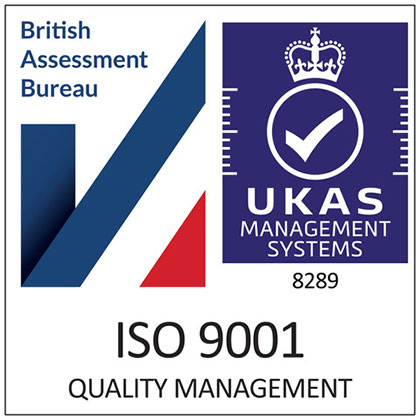The Fire Safety Industry: A Brexit Perspective
We now find ourselves almost three months removed from the Brexit vote which divided the nation and parted the opinions of industry experts and general populace alike. But with the ballots cast and the post referendum panic reaching its decline, calmer heads can begin to predict what a post Brexit world actually means for the UK’s fire safety industry. With Article 50 still shelved in favour of a more cautious and tip-toed approach to European separation, change may not be imminent, but as an industry dealing in risk assessment and planning, we can all appreciate the value of foresight and preparation!
Amendments, Acceptance or Overhauling?
It is no secret that EU legislation was a key point during voting, with health and safety and workers’ rights being touted as a key reason for remaining, but are we actually likely to see regulatory changes moving forward? In truth, wholesale overhaul seems unlikely for a nation which leads the way in health and safety across Europe. With Britain being recognised as the gold standard for European health and safety – particularly in fire safety – any great changes would seem an unnecessary and wasteful prospect from a government eager to stamp its name across a brave, new Britain. There is a real sense of, “If it’s not broken, don’t fix it”, and any great reform of the regulations is likely to cause some major backlash from across the wider industry. Ultimately, any great changes will need to benefit both the industry and its customers as a whole, minimising the chance of great industry movement, but whilst our industry still complies with EU legislation that forms the basis for our guidelines, we still have to be prepared for some potential turbulence moving forward.
The Legalities of the Situation
With Theresa May suggesting a potential activation of Article 50 around March of 2017, there are still a few months left before any legal or regulatory changes can be decided and brought into effect. Whilst Britain remains within the EU, any EU legislation will be adhered to as strictly as it ever was, and only once we break from the larger EU pack can we expect to see differences in legislature creep in. Whilst the EU will no doubt retain its existing fire safety regulations, Britain has the opportunity to repeal, reform or retain any of the EU regulations currently imposed on it.
With this said, any great reform of the Fire Safety Order seems an unlikely prospect, and with EU regulations lining up perfectly alongside British Standards, there remains no theoretical reason for any issues to arise in the immediate future. In practice, however, any change in EU rulings would see Britain adhering to separate standards to the EU states. This would require Britain to either adopt EU regulations despite its diminished influence over EU law, or see a potential drop-off in European trade in the not too distant future. If Britain is to trade with Europe, we shall have to remain tied to the unified regulations imposed across each member state. It is worth noting, however, that standards of compliance across Europe, whilst theoretically harmonised, still show variations in practice. Most countries will choose to acknowledge a national standard over the EU imposed regulations, which remains a common practice throughout the wider European state. As such, Britain’s high standards make them unlikely to fall outside of the scope of European legislation.
Dealing With Europe
Britain’s relationship with the EU, could be about to change in a big way, and trade will be a key point in the discussions. EU ministers have made no secret of their beliefs that Britain must see harsh penalties for leaving the EU, and most would agree that this is most easily implemented in the form of diminished trade agreements. With the pound falling in relation to the Euro, prices are already increasing with regards to the buying and importing of EU goods, but it seems an educated guess to suggest that potential import fees and further taxes may see an even steeper rise in the cost of importing and exporting goods. This could be compounded yet further by potential limits and caps on the volume of goods that the EU is willing to import fro the UK, which could limit exports to mainland Europe, decreasing the value of our trades to other European nations, and perhaps put a greater importance on the volume of nationwide trade.
All of this is, of course, hearsay; at least until Brexit negotiations begin and the battle-lines have been drawn by both sides. We could see Theresa May negotiate better trade terms than those expected or hinted at by other EU members, and trade may not be as doom and gloom as first appears, but I’m of a mind that it is always best to prepare for the worst! Sanctions are expected, and trade is expected to go down, though quite the impact it will have on necessary and gold-standard goods such as those in the health and safety sector remains to be seen. There are a few industries for which Britain leads the way in Europe, and the medical and health and safety sectors form two such great examples. Whether the EU know this well enough to continue open trade in these areas is dubious, but neither will they want to cut off their nose to spite their face. Regardless, as Peter Lilley once wrote, “Countries succeed, with or without trade deals, if they produce goods and services other countries want.”
Dealing With The Wider World
Whilst the EU may be looking at the possible imposition of trade sanctions, there is of course an entirely separate group of nations available to trade with, and no EU legislation need be followed in doing so. Britain will look to re-engage with the commonwealth countries, such as Australia and India, as well as wider and fast growing nations such as China and Brazil. It is no secret that trade deals move faster and more efficiently with smaller groups, as fewer barriers to trade are recognised. Consequently, it remains a distinct likelihood that with EU legislation and partners removed from the picture, agreements with a wealth of other nations can be implemented far faster, providing access to a potentially greater volume of people. China and India alone, represent some three billion people – six times more than the five hundred million people of the EU states. This provides an enormous potential for customers and trade partners which may otherwise have been blocked or ignored; and without EU legislation, the terms of negotiation remain firmly in the hands of the British government.
So What Now?
Well, there’s really not a lot that can be done, and nothing is set in stone until negotiations cease and Article 50 is triggered. Should we prepare to protect our UK based clients? Should we be looking at slowing our UK exports? Should we be excited at the prospect of a larger, more global market? Only time will tell; so until then, it’s probably best to cross our fingers and remember that old, quintessentially British saying… Keep calm and carry on.






